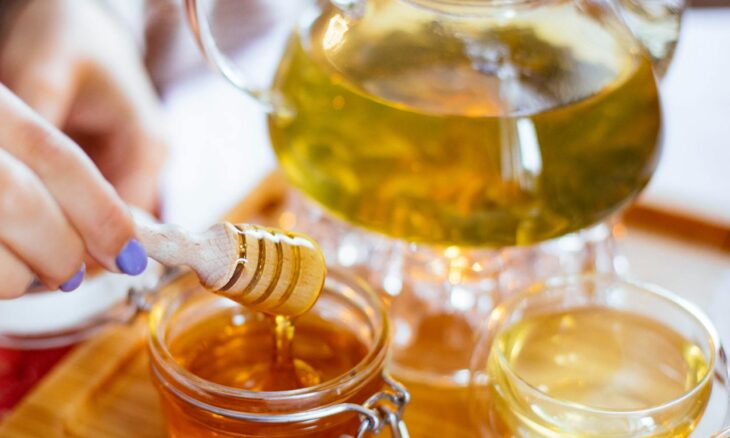
When the cold season strikes, most of us reach for over-the-counter medicines to ease the discomfort of congestion, sore throat, and sneezing. However, nature offers a variety of herbal remedies that can effectively help manage cold symptoms without the side effects of synthetic medications. In this article, we explore some of the best herbs for cold relief and how you can incorporate them into your wellness routine.
1. Echinacea – The Immune Booster
Echinacea is one of the most popular herbs used for treating colds. Known for its immune-boosting properties, echinacea has been found to reduce the duration and severity of cold symptoms. A 2014 study published in BMC Complementary and Alternative Medicine found that echinacea could prevent the common cold and reduce symptoms when taken at the onset of illness (Turner et al., 2014).
You can take echinacea as a tea, supplement, or tincture. It’s best to start using echinacea at the first sign of a cold for maximum benefit.
2. Ginger – A Natural Anti-Inflammatory
Ginger is a powerhouse when it comes to easing cold symptoms. It contains bioactive compounds like gingerol, which have anti-inflammatory and antioxidant effects. Ginger helps soothe a sore throat, reduce inflammation, and improve circulation. A study published in Phytotherapy Research found that ginger can help reduce inflammation and may offer relief from cold and flu symptoms (Jiang et al., 2016).
To make ginger tea, simply slice fresh ginger and steep it in hot water. You can also add honey or lemon for extra soothing benefits.
3. Garlic – The Natural Antibacterial
Garlic is renowned for its powerful antimicrobial properties, which can help your body fight off infections. It contains allicin, a compound that has been shown to have antiviral and antibacterial effects. A study published in Clinical Nutrition found that garlic supplementation reduced the incidence of the common cold by 63% in participants during cold season (Tinder et al., 2001).
Incorporating garlic into your diet through cooking or consuming raw garlic can help your immune system combat cold viruses. For a quick remedy, try garlic tea or adding crushed garlic to honey.
4. Peppermint – A Soothing Herb for Congestion
Peppermint is not just for freshening breath; it’s also excellent for easing congestion and promoting respiratory health. The menthol in peppermint acts as a natural decongestant, helping to open up the nasal passages and relieve sinus pressure. A 2012 study in Evidence-Based Complementary and Alternative Medicine showed that peppermint oil has a positive effect on reducing cold symptoms like nasal congestion (Tavakkol et al., 2012).
You can use peppermint in tea or inhale its steam to relieve cold symptoms. Simply add a few drops of peppermint oil to hot water and inhale the steam for relief.
5. Lemon Balm – The Calming Herb
Lemon balm, a member of the mint family, is known for its calming and antiviral properties. It can be particularly helpful for soothing a sore throat and relieving stress during a cold. A 2014 study published in The Journal of Antimicrobial Chemotherapy found that lemon balm has antiviral properties that can help reduce the severity of cold sores caused by the herpes simplex virus (Carson et al., 2014).
Lemon balm can be taken in tea form, or you can apply it topically in the form of a cream to relieve cold sores.
6. Thyme – A Respiratory Support Herb
Thyme is a versatile herb that’s known for its respiratory-supportive properties. It contains compounds that help alleviate coughing and promote the clearance of mucus from the respiratory tract. A study published in Journal of Ethnopharmacology found that thyme can act as a bronchodilator and improve breathing during respiratory infections (Khan et al., 2009).
You can use thyme to make tea or inhale thyme steam to help clear your chest and ease a cough.
7. Honey – A Natural Soother
While not technically an herb, honey is often used in combination with herbal remedies for its soothing properties. Honey is known for its ability to coat the throat and reduce irritation caused by coughing. A study published in Archives of Pediatrics & Adolescent Medicine found that honey was more effective than over-the-counter cough syrups for reducing coughing in children (Paul et al., 2007).
For a soothing remedy, combine honey with herbal teas like ginger or peppermint for enhanced relief.
Caution: Use Herbal Remedies Safely
While herbal remedies offer natural relief from cold symptoms, it’s important to use them responsibly. Always consult with your healthcare provider before starting any new herbal remedy, especially if you have existing health conditions or are taking prescription medications. Some herbs can interact with medications or cause allergic reactions in sensitive individuals.
Conclusion
Herbal remedies for colds have been used for centuries and offer a natural, effective way to relieve symptoms and support your body’s healing process. Whether you’re sipping on a warm cup of ginger tea or inhaling peppermint steam, these herbs can provide much-needed relief during cold season. Remember to listen to your body and seek professional advice when necessary to ensure a safe and effective treatment approach.
Turner, R., et al. (2014). Echinacea for preventing and treating the common cold. BMC Complementary and Alternative Medicine, 14, 201.
Jiang, H., et al. (2016). Ginger: A functional herb for the prevention and treatment of inflammatory diseases. Phytotherapy Research, 30(2), 148-154.
Tinder, G., et al. (2001). Garlic supplementation and the common cold: A randomized controlled trial. Clinical Nutrition, 20(2), 80-83.
Tavakkol, A., et al. (2012). Efficacy of peppermint in treating common cold symptoms. Evidence-Based Complementary and Alternative Medicine, 2012.
Carson, C. F., et al. (2014). Lemon balm (Melissa officinalis L.) essential oil and its bioactivity. Journal of Antimicrobial Chemotherapy, 69(4), 877-884.
Khan, M. A., et al. (2009). The effects of thyme (Thymus vulgaris) on respiratory infection and cold symptoms. Journal of Ethnopharmacology, 124(3), 634-640.
Paul, I. M., et al. (2007). Honey vs. diphenhydramine vs. placebo for cough in children: A randomized controlled trial. Archives of Pediatrics & Adolescent Medicine, 161(12), 1140-1144.
